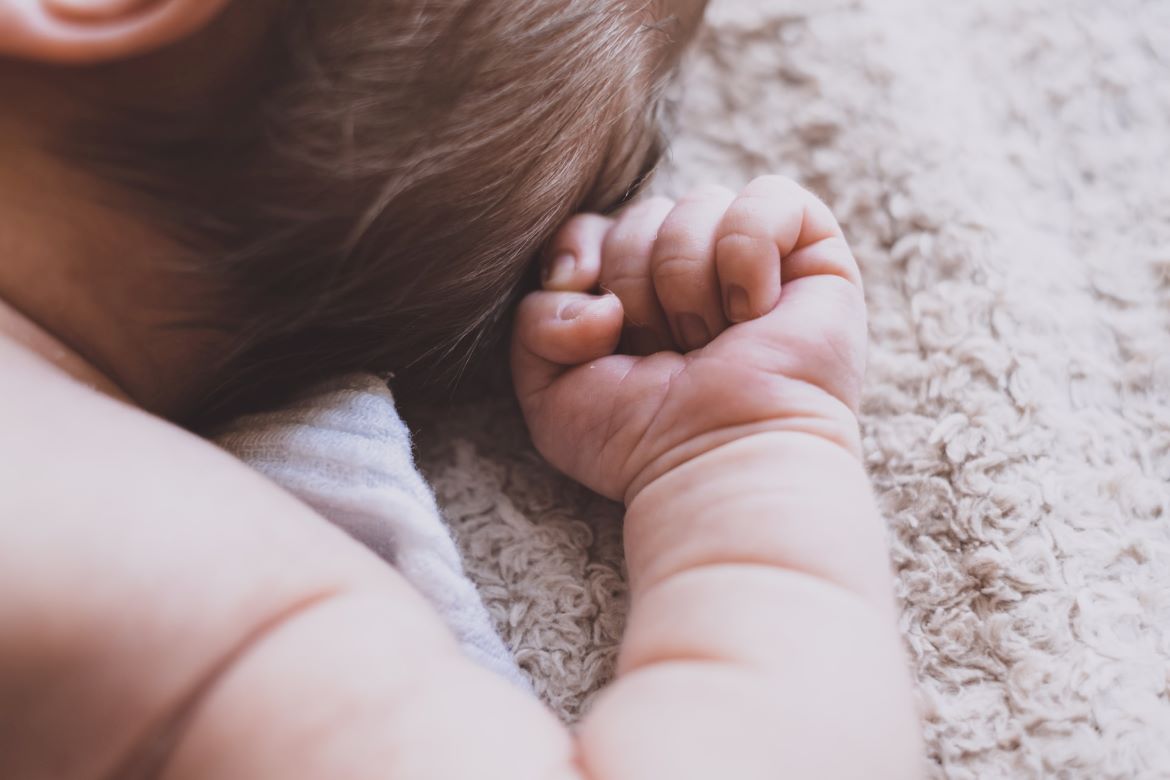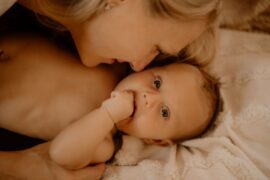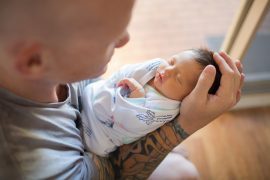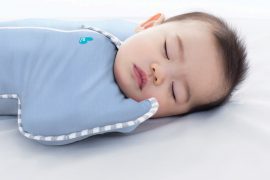By Tracy Cassels
Note: I apologise for the length, I didn’t mean for it to be so long, but alas, sometimes there’s a lot to say!
There’s an article making the rounds that is claiming it’s false that any form of sleep training ever will have a negative effect on your child. It’s quite the dramatic claim, the counter to the other dramatic claim that sleep training will ruin your child forever.
I don’t buy either view. The fact of the matter is, we have so little research on this that we really don’t know much. I think there is a pretty strong circumstantial case that sleep training can absolutely pose problems in some individuals and it definitely doesn’t do anything positive for the relationship, but the smoking gun is absent and parents really need to know this. (This said, I absolutely 100% am against extinction sleep training methods and believe that when we look at what we do know, we should see that it is not only not helping infants sleep, but the risks of potential problems is still there and should be seriously considered by all. Also, there are other methods.)
However, equally they need to know that a lot of what people are talking about with respect to the lack of effects of stress on infant development and attachment also doesn’t hold much water (if any) at all. Frankly, all parents deserve to know how little we actually know about long-term outcomes (after all, sleep training is a very recent development in the history of humankind and still remains something many cultures are, to put it lightly, dismayed by) and the options that exist for them when they feel they are in crisis.
However, this piece is to counter the specific claims made in one piece using the research cited within it, because it is frustrating to see such absolutes taken from research that really makes no absolute claims. You can find the original article and the research cited here.
Claim #1: Sleep training “generally just means a baby is learning the skill of falling asleep independently when they are developmentally ready to.”
Okay so there’s no research here, but I had to call this out. Let’s look at it logically: If a baby is developmentally ready to fall asleep independently, s/he will unless you’re a parent who is actively keeping them from doing so. And this doesn’t mean nursing to sleep or anything like that. I don’t know parents who see a baby drifting off then wake them screaming, “No! I MUST put you to sleep!” Just as you don’t need to train a baby to eat, crawl, walk, and so on, you don’t actually need to train a baby to sleep.
You provide the right environment (and this is where some families can get mixed up) and when your baby is developmentally ready, they will fall asleep independently.
It is worth noting that our society tells us this time frame should be early, but we have nothing to back that up. In fact, we have no data that tells us when is normal for a child to sleep through from a biological perspective because our parenting habits are so counter to it that even the studies we do have that look at sleep are skewed. We do know that breastfeeding babies tend to wake regularly for longer periods than non-breastfeeding babies and co-sleeping babies (which is, in fact, the biological norm) will wake more frequently too. There’s also huge inter-child differences so perhaps it’s just futile to have any set time frame.
For those interested in the topic of culture versus biology, I strongly, strongly recommend reading Our Babies, Ourselves by Dr. Meredith Small.
Claim #2: Babies respond to stress differently, not all result in a rise in cortisol. Specifically, they will react to something new (like a bath) with crying and a rise in cortisol, but as they adapt to it, they won’t have that rise anymore. So the stopping of crying in sleep training is not about “giving up” but because they have “moved through the stress response to a positive response”.
Okay, a lot to unpack here. Let’s start with the first bit that babies respond to stress differently and not all stressful situations result in a rise in cortisol. This is true. What’s missing is what we know about the “why” here. Of course I should preface this by saying that the why may be temperamental differences. Kids with “easier” (hate that term, but it’s used) temperaments may simply not find as much stressful and thus not respond as such. However, even when there is a situation that should result in stress and doesn’t, we find it’s almost inevitably due to social buffering (Gunnar & Donzella, 2002). That is, when children experience stress while being supported and cared for by a responsive adult, they can show the same behavioural response of crying, but it’s not associated with a rise in cortisol. This is what is called hyporesponsivity and is a hallmark of infant development. Notably, this is far more pronounced and important for children with a “negative” temperament (i.e., sensitive) as they seem to suffer if they do receive what Gunnar and Donzella call “less-than-optimal care”.
This social buffering is crucial because it addresses the issue of whether or not a child is giving up or has moved to something positive. The author uses baths as an example and although some of us with sensitive kids realised they never moved to finding the bath positive until after a year or so (thank you showers), most do find their child is upset in the tub but then adapts. The key part here is that your child has you comforting them and responding to them as they take the bath.
The responsiveness and support of a parent is crucial to helping children learn from mild to moderate stressors (you can also see the work of Dr. Bruce Perry as he does discuss the importance of support during periods of stress in helping children learn emotion regulation).
In sleep training, there is no one to learn from as a child is often left by him or herself. In fact, the surefire way to elicit cortisol in children is to separate them from a caregiver and not provide responsive care.
Therefore this claim that a child has not given up is based on nothing but wishful thinking. Perhaps the stress an individual child experiences isn’t great, but to claim that the idea of giving up is patently wrong isn’t supported (and learned helplessness is a thing for kids).











